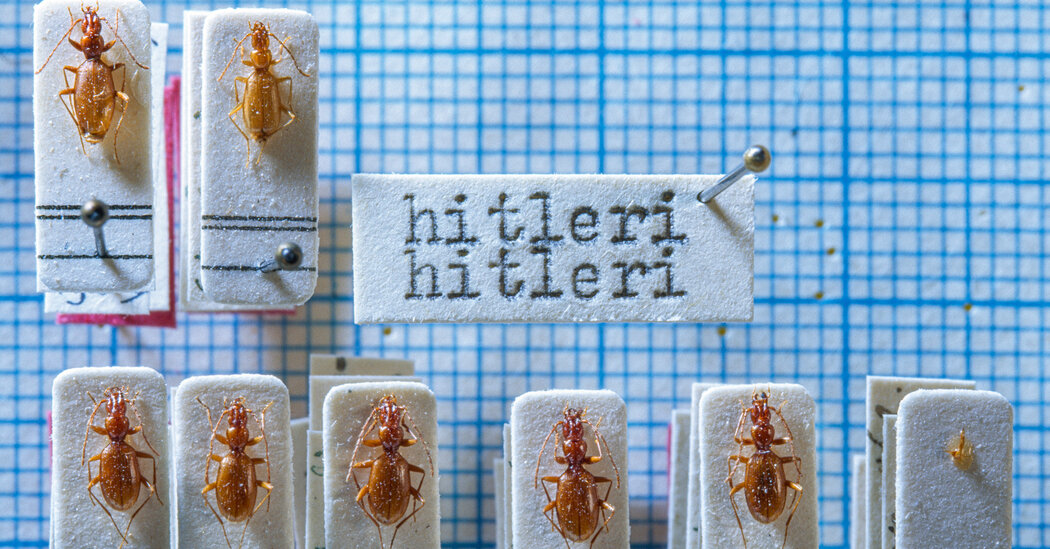[ad_1]
Anophthalmus hitleri was discovered in the former Yugoslavia on June 20, 1932, four months after the Austrian-born Hitler became a German citizen and four days before he demanded, as leader of the Nazi Party, that the government declare martial law throughout the country. The discoverer, a naturalist named Vladimir Kodric, stumbled on the insect in a cave named Pekel (English translation: hell) near the town of Celje, in modern-day Slovenia. The specimen is now enshrined behind glass at the Natural History Museum in Basel, Switzerland.
Kodric sent the specimen to Oskar Scheibel, a railway engineer whose hobby was coleopterology, the study of beetles. Scheibel was convinced that the insect represented a new species, but delayed publishing the news to be sure of it. In 1937, with Hitler firmly ensconced as chancellor, Scheibel reneged on a promise to name the beetle after Kodric and registered it as Anophthalmus hitleri. He then notified the chancellery in Berlin of the insect and its new name. (A few experts have suggested that Scheibel may have been mocking Hitler by naming a blind bug after him, but the accompanying description reads: “Given to Reich Chancellor Adolf Hitler as an expression of my admiration.”)
Given Hitler’s fondness for beetles — in 1933 he commissioned Ferdinand Porsche to design the “people’s car” (volkswagen, in German), which evolved into the VW Bug — it is perhaps not surprising that the tribute pleased the Nazi leader, who sent Scheibel a thank-you note. Curiously, contemporaneous offers to introduce varieties of a rose and a strawberry named for Hitler did not prosper. According to Michael Ohl’s 2019 book, “The Art of Naming,” Hans Heinrich Lammers, head of the Reich Chancellery, turned down both requests, informing the inquiring parties that “upon careful consideration” Hitler “requests that a name in his honor most kindly not be used.”
Hitler did have strong views on what animals should be called. In 1942, the German Society for Mammalogy passed a resolution to replace the common names for bats (Fledermaus) and shrews (Spitzmaus), reasoning that neither was a maus, or mouse. The society’s decision brought a swift response from Martin Bormann, Hitler’s private secretary. On orders from the outraged Führer, Bormann instructed Lammers to “communicate to the responsible parties, in no uncertain terms, that these changes of name are to be reversed immediately.”
The message continued: “Should members of the Society for Mammalogy have nothing more essential to the war effort or smarter to do, perhaps an extended stint in the construction battalion on the Russian front could be arranged.”
[ad_2]
Source link

